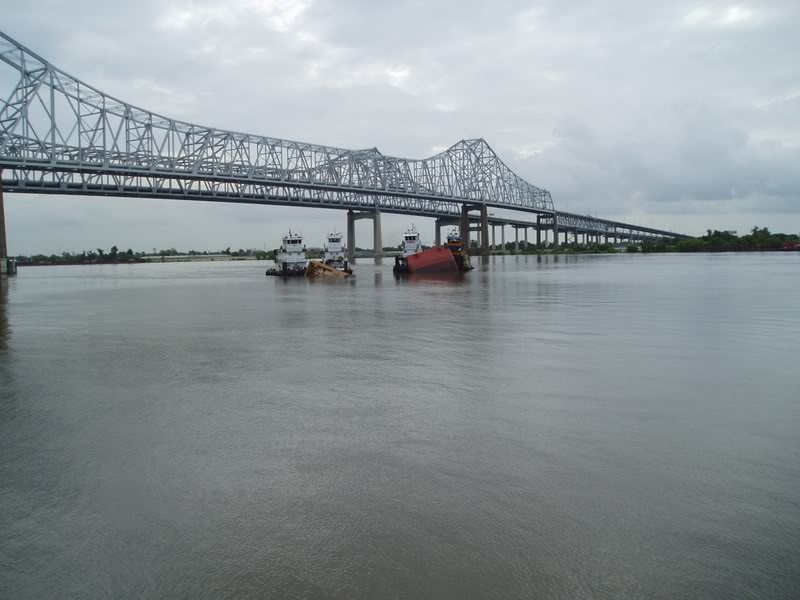Oil spill near New Orleans underscores the risks faced by petroleum-producing communities

As politicians from across the South clamor to lift the federal ban on offshore oil drilling, the disaster that took place early this morning near New Orleans highlights the very real dangers faced by oil-producing communities.
Around 1:30 a.m., a chemical tanker collided with a fuel barge on the Mississippi River, ripping the barge in two and spilling over 400,000 gallons of unrefined, tar-like fuel oil into the water. The U.S. Coast Guard has shut down a 29-mile stretch of the river around the city, and an oil slick at least 12 miles long has spread along the water.
Drinking water intakes have been closed along the river's West Bank in Algiers, Gretna, St. Bernard Parish and Plaquemines Parish, and residents have been asked to conserve water. Water flowing through the tap is from reserve supplies, which could run out in many areas by tonight, the New Orleans Times-Picayune reports. Fortunately, the East Bank's water intakes are upriver of the crash site.
The owner of the barge that way carrying the oil -- American Commercial Lines of Jeffersonville, Ind. -- is reportedly paying for the cleanup effort even though it has not been found responsible for the collision. State environmental officials are coordinating a massive effort to keep the oil from leaching into wetlands south of the crash site.
The spill apparently occurred when a 600-foot tanker called "Tintomara" -- owned by Laurin Maritime of Houston and sailing under the Liberian flag -- crashed into the barge carrying the fuel oil. The tanker, which did not leak, was carrying about 4.2 million gallons of biodiesel and nearly 1.3 million gallons of styrene, according to the Associated Press. The Coast Guard is still investigating the cause of the crash.
A heavy stench of petroleum has been hanging over New Orleans all day. The Louisiana Department of Environmental Quality has dispatched emergency responders with portable air monitors to patrol areas around the city's Riverwalk and French Quarter, but they say they're detecting hydrocarbons at levels too low to require any action.
(Photo of wrecked barge and tugboats near the Crescent City Connection Bridge courtesy of DEQ)
Tags
Sue Sturgis
Sue is the former editorial director of Facing South and the Institute for Southern Studies.
